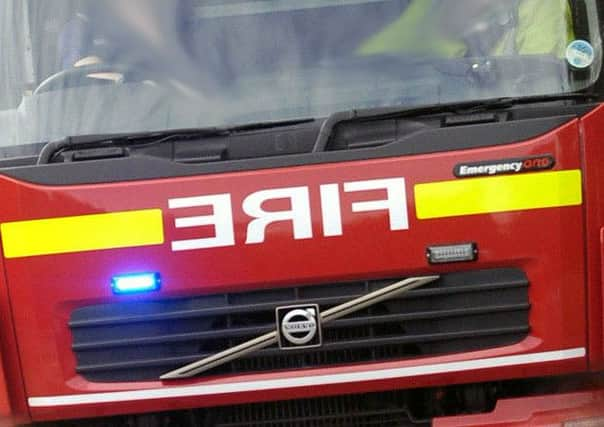Kitchen fire safety advice offered after '˜preventable' oven fires in Sleaford and Grantham overnight


Both were described by a fire service spokesman as “accidental but preventable”.
The service has issued advice reminding residents of some safety tips to avoid kitchen fires.
Advertisement
Hide AdAdvertisement
Hide AdThey say that nearly two thirds of all domestic fires happen because of cooking. The kitchen is the single most dangerous place in your home.
The fire service offers advice on how to keep safe while cooking, plus what to do if a fire starts in your kitchen.
Making the Kitchen Safe
A checklist of the steps you should take to make the kitchen a safe place.
Cooker:
Keep electrical leads from trailing over or going near the cooker
Don’t hang tea towels or cloths on or over the cooker
Advertisement
Hide AdAdvertisement
Hide AdKeep the oven, hob and grill clean. A build-up of fat and bits of food can start a fire
Microwave:
Don’t put anything metallic inside the microwave
Don’t dry clothes in the microwave
Electrical:
Keep electrical leads away from water
Don’t put a plant pot or anything wet on top of an electrical appliance
Check the toaster is clean and well away from curtains
Don’t overload sockets - one plug per socket is the rule, especially if the appliance takes a lot of power (like a kettle)
Don’t run extension cables across the floor as they can become worn
Advertisement
Hide AdAdvertisement
Hide AdElectrical appliances - especially those that work at high speeds, such as the washing machine - should be serviced each year
Don’t leave appliances such as washing machines or dishwashers on at night
Is the kettle leaking? This can be dangerous
Protection:
Buy a smoke alarm fitted with a “hush button” so if it goes off accidentally you can silence it instantly. That way you won’t be tempted to remove the battery (except to change it for a new one). If your alarm keeps going off unnecessarily you may need to move it further away from the kitchen
Consider fitting a heat alarm in the kitchen
Cooking Safely
The most important point about cooking is to avoid being distracted. Most kitchen fires occur when people leave things unattended
Advertisement
Hide AdAdvertisement
Hide AdIf you’re called away from the cooker - by the phone, say, or by someone at the door - take pans off the heat. It’s the easiest thing in the world to forget about them
Don’t let yourself be distracted while cooking
Don’t cook if you’re affected by alcohol or prescription drugs
Turn saucepan handles so they don’t stick out (and aren’t over another ring)
Keep the oven door shut
Don’t put oven gloves or tea towels down on the cooker after you’ve used them
Always clean the grill pan after using it
Deep Frying
Advertisement
Hide AdAdvertisement
Hide AdChip pan fires cause one fifth of all accidental dwelling fires attended by the Fire and Rescue Service in the UK each year. Nearly 20 people are killed or injured every day in accidental fires that start in their kitchen, the most common of these caused by deep fat frying.
If you do choose to deep fat fry your chips, make sure you do it safely. Better still, choose oven chips or use a thermostatic fryer.
Never fill a chip pan more than a third full of oil
Consider using a thermostatically controlled deep fat fryer
Never leave your cooking unattended. Even if the phone or doorbell rings. Remember - fires start when your attention stops
If you’ve consumed alcohol, don’t be tempted to cook with a chip pan
If you do have a chip pan fire:
Call the Fire and Rescue Service on 999 immediately
Don’t take risks
Have a clear escape route
Never move the pan
Turn off the heat (if it’s safe to do so)
Advertisement
Hide AdAdvertisement
Hide AdNever use water on chip pan fires, as this will cause a fireball
The most common type of fire is caused by deep fat frying. 4,000 people are injured in these kinds of fires each year.
Think about what you’re doing when you’re deep frying. You’re heating several pints of oil to extremely high temperatures. The oil can not only cause terrible burns, but it can go up in flames. In fact, it’s an ideal fuel for a fire, and difficult to put out.
Never fill the pan more than one third full
Dry food before putting it in (water can make the oil explode)
Advertisement
Hide AdAdvertisement
Hide AdTest the temperature with a small piece of bread or potato. If it crisps quickly, the oil is hot enough
If the oil starts to smoke don’t put the food in. Turn off the heat and leave it to cool
Don’t ever leave the pan unattended
If there are flames, never throw water over the pan. It will explode.